Have you ever thought of travelling without food? Perhaps, never! Because travelling can never be imagined without a good pack of non perishable food.
Non perishable foods are those that do not get spoil if stored under room temperature for a reasonably long time. So, what are the best healthy non perishable foods for travel? When you are in the journey and think about eating healthy- then the warfare or the struggle is reasonable!
However, the best thing about non-perishable foods is that they have a long shelf life and don’t even require to be refrigerated. Non-perishable foods are treated with heat or dry to get rid of microorganisms like bacteria or fungi. Non-perishable foods for travelling include mainly canned or jarred foods, frozen items, and packaged foods.
That is why these are undoubtedly the best items for taking while travelling. Moreover, when it comes to the selection of the best item to pick for travelling, you get worried! And it’s very logical. When children or old people travel with you, then your concern becomes double. But don’t worry!
We are here to give you an idea about some Non Perishable Foods for Travelling. Journey gives you immense pleasure to your mind but you need to be careful of your body needs as well. In this case, a regular supply of water is a must and then comes food that will keep your body healthy and strong.
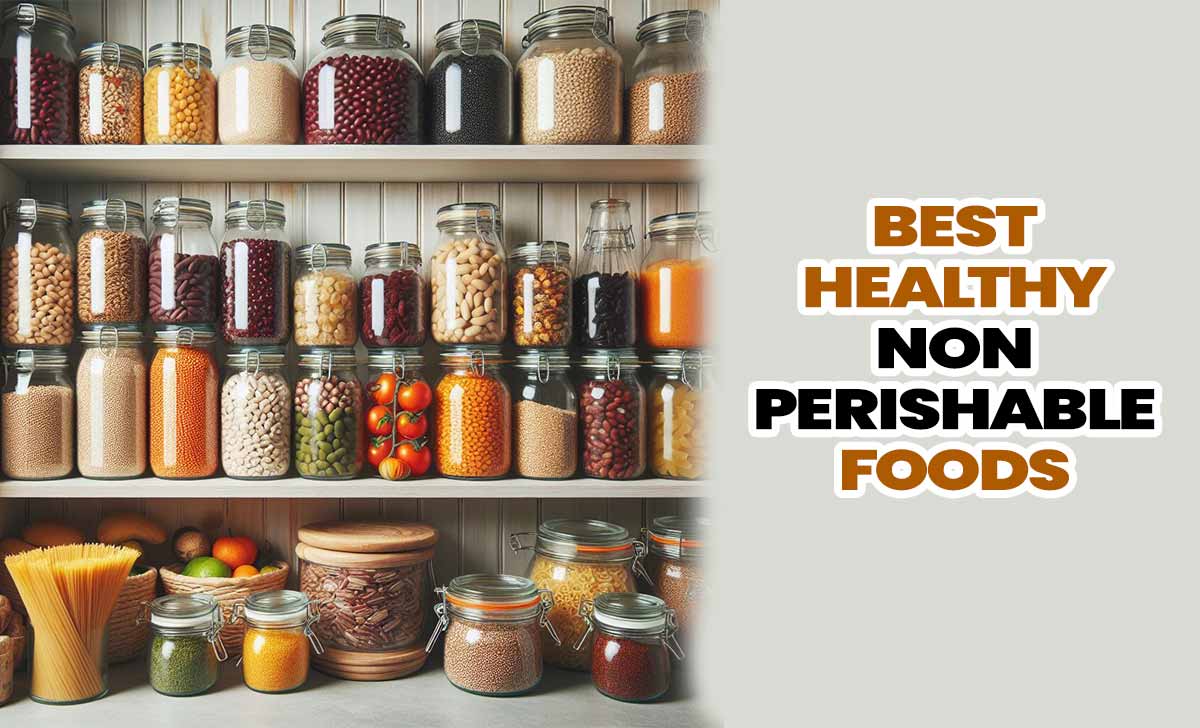
4 Types Of Non Perishable Foods for Travelling
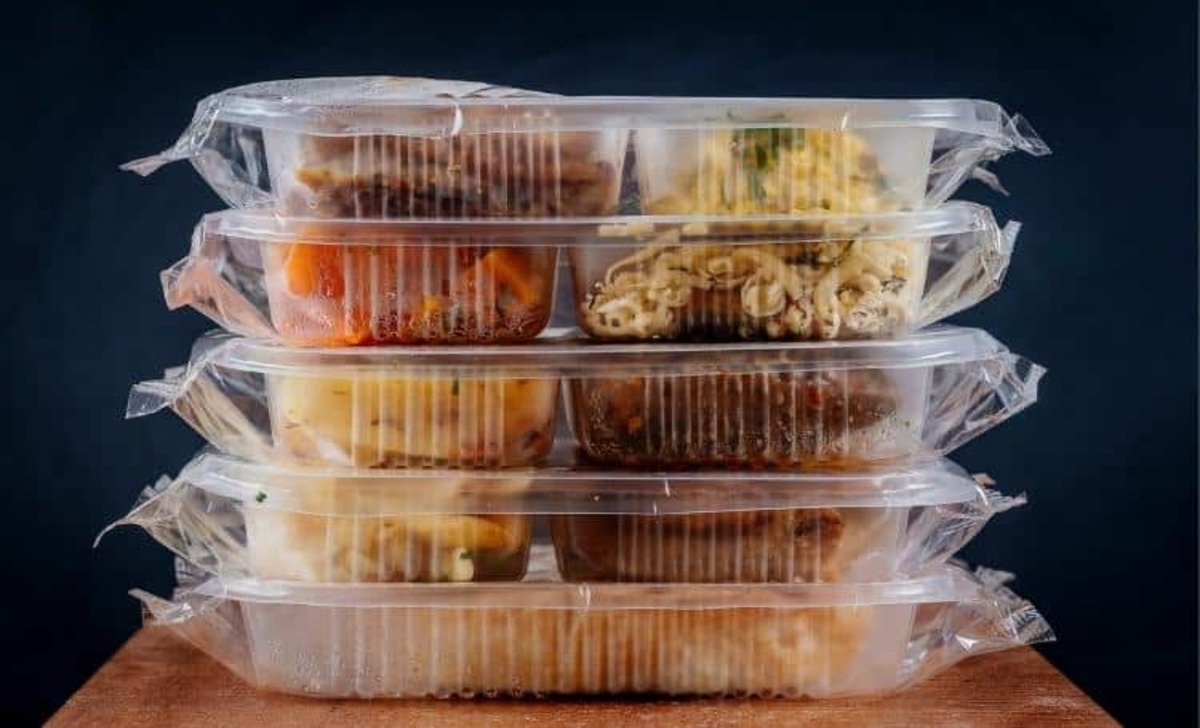
1.Non Peris Hable Foods For Breakfast In Travelling
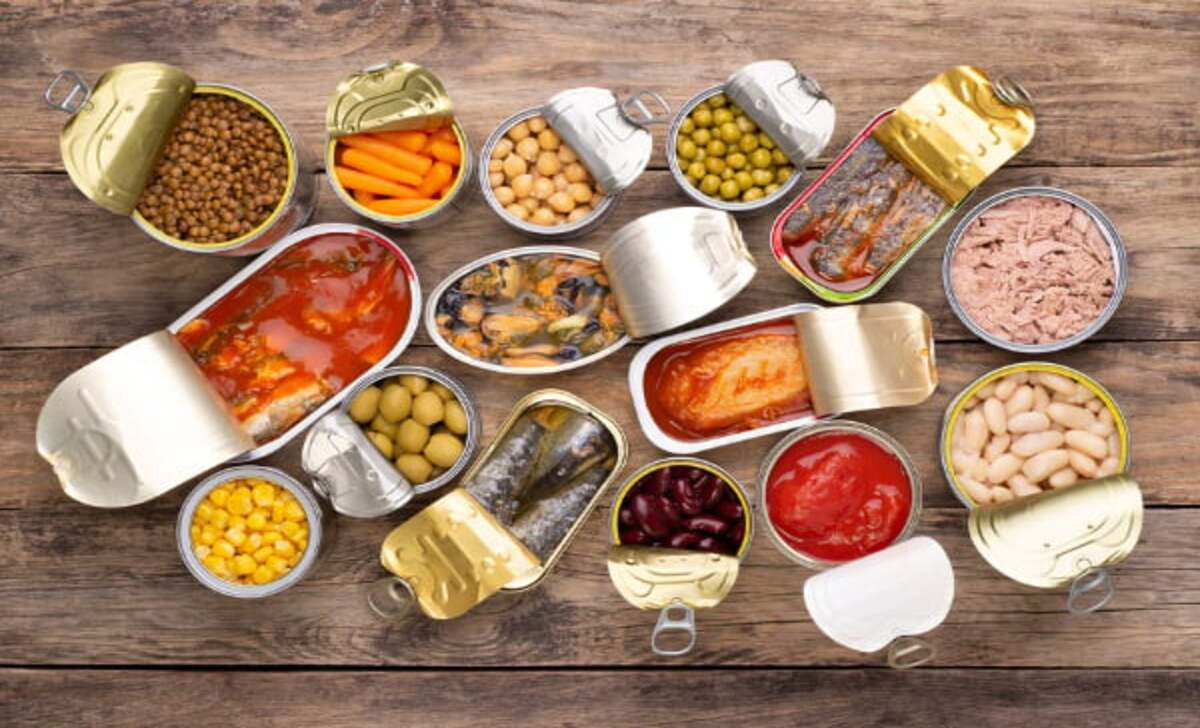
Among all the other meals of a day, breakfast is the most important one as it gives you the energy to carry on your whole day. So, you need to select the best non-perishable foods for travelling to have your breakfast. You can take hard-boiled eggs, raw nuts, fresh fruits, canned nuts, slices of raw milk cheese.
Remember, don’t cut the fruits up in advance unless you’re willing to eat it right away. In addition to that, take whole peaches and oranges to wash or peel just before eating. These are health-promoting foods that you may have easy access to, and it will even save your money as well.
2.Non-Perishable Foods For Lunch In Travelling
Eating healthy lunches becomes slightly more difficult than having lunch at your home and it is not even expected or possible. But you can maintain a healthy diet if you plan wisely about packing your food for a trip.
You may take fresh veggies, dried fruit, rice cakes, pre-cooked roasted sweet potatoes, granola,meats like shrimp, chicken or beef pre-cut into strips in your carry-on bags.
Fruits include apples, bananas, avocados or oranges Before travelling, you may even check the nutritional facts for your betterment. You may even take fresh juice and pre-made salad.
3.Non-Perishable Foods For Dinner In Travelling
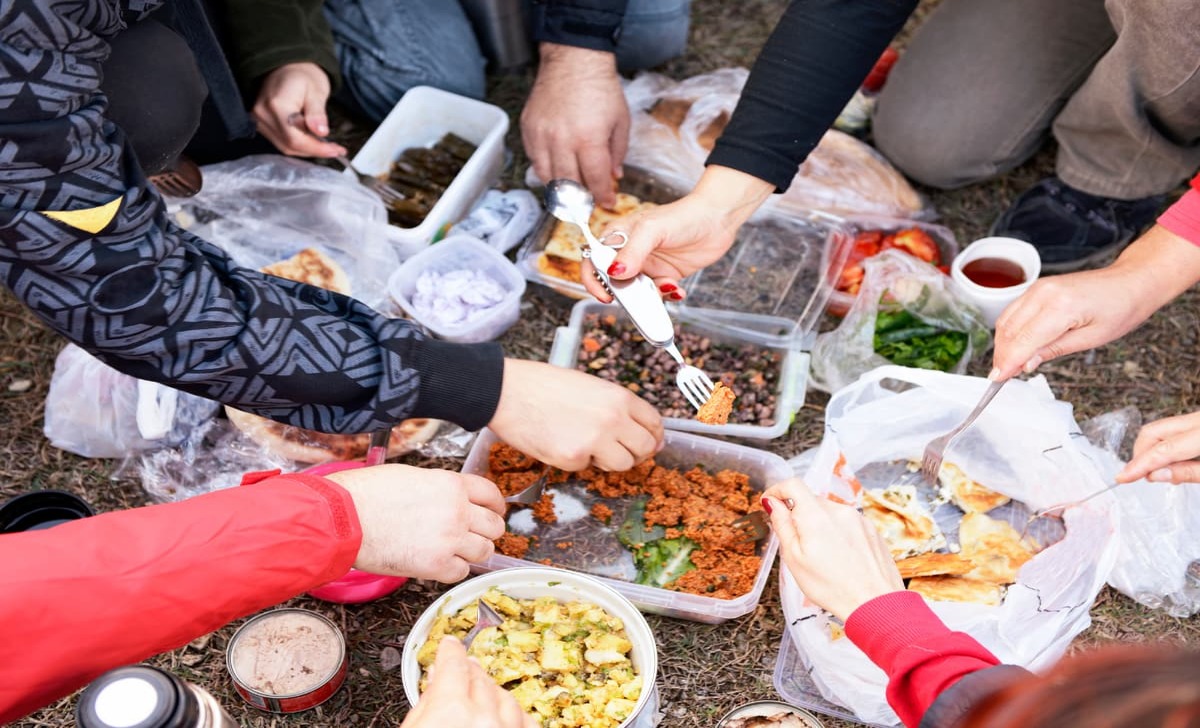
Dinner is also very important to choose wisely for a happy journey. You may take a few pasta dishes, spaghetti, sandwiches, burger, peanut butter, bread, frozen items and soups. Take pre-sliced mini bagels or bags of popcorn, chips and pretzels for salty cravings.
Pack juice boxes are another healthy non-perishable food for travelling, which are delicious even at room temperature. Cup noodles and frozen foods are other good choices for dinner. However, in desserts, you may have dark chocolate, cookies, and chocolate mixture.
But be careful! Crazy heavy desserts can add up bloat, headaches, and unpleasant digestive distress during your trip. On the other hand, cookies and milk, popcorn and lemonade, or chips and salsa, yoghurt, instant oatmeal- are all convenient bedtime snacks for a travelling family. It even saves your big-money.
4.Non-Perishable Foods For Toddlers In Travelling
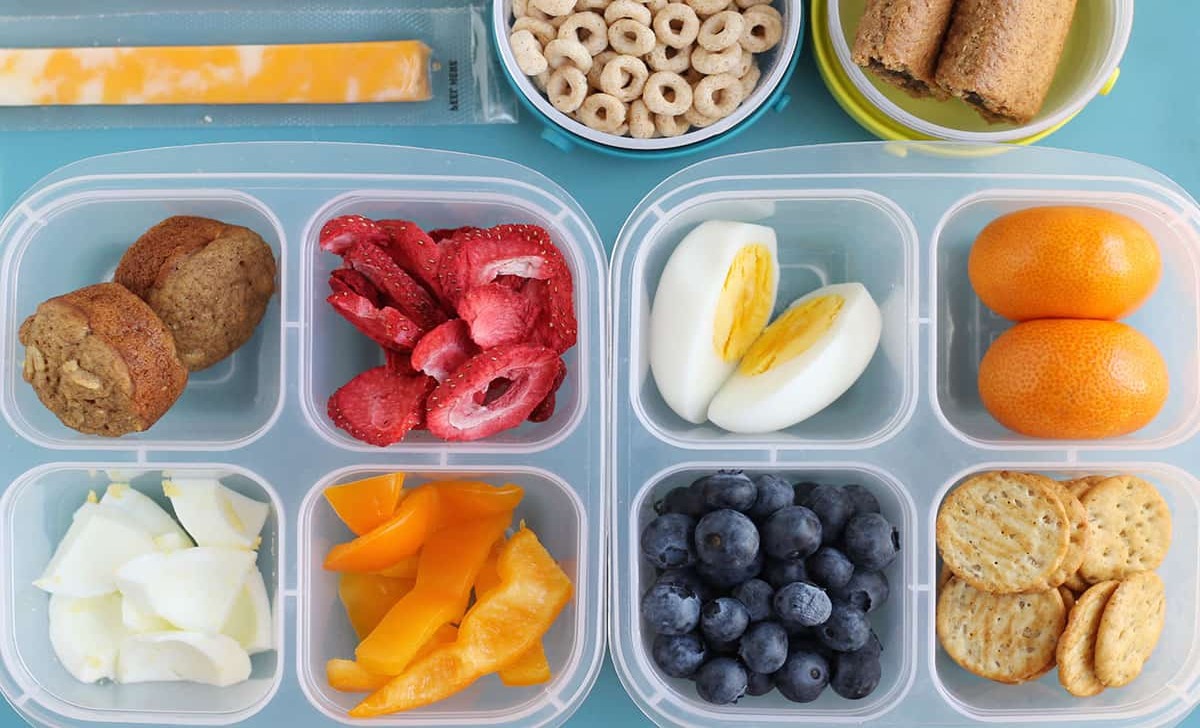
Travelling with children requires the most travel-friendly preparation. Your main concern becomes what you’re going to give your baby to eat while having a journey. But don’t get panicked! There are several travel-friendly and non-perishable foods for travelling, that you can pick to give to your toddlers.
Noodles that can be reconstituted with boiling water, ramen, few loaves of sliced bread and jars of peanut butter, nocila, jam, cheese, canned milk, Soup packets Crackers, cookies, and fig bars. You may even take sliced bananas, apples, pears, tangerine and so on among the fruits.
However, banana chips, apricot, raisins, cherries, blueberries, fruit leather are also best as non-perishable foods for toddlers. Moreover, nuts, dried fruit, chocolate mixture (known as trail mix) or dry cereal to be served with pasteurized milkare other foods liked by children.
Cautions While Selecting Non-Perishable Foods For Travelling
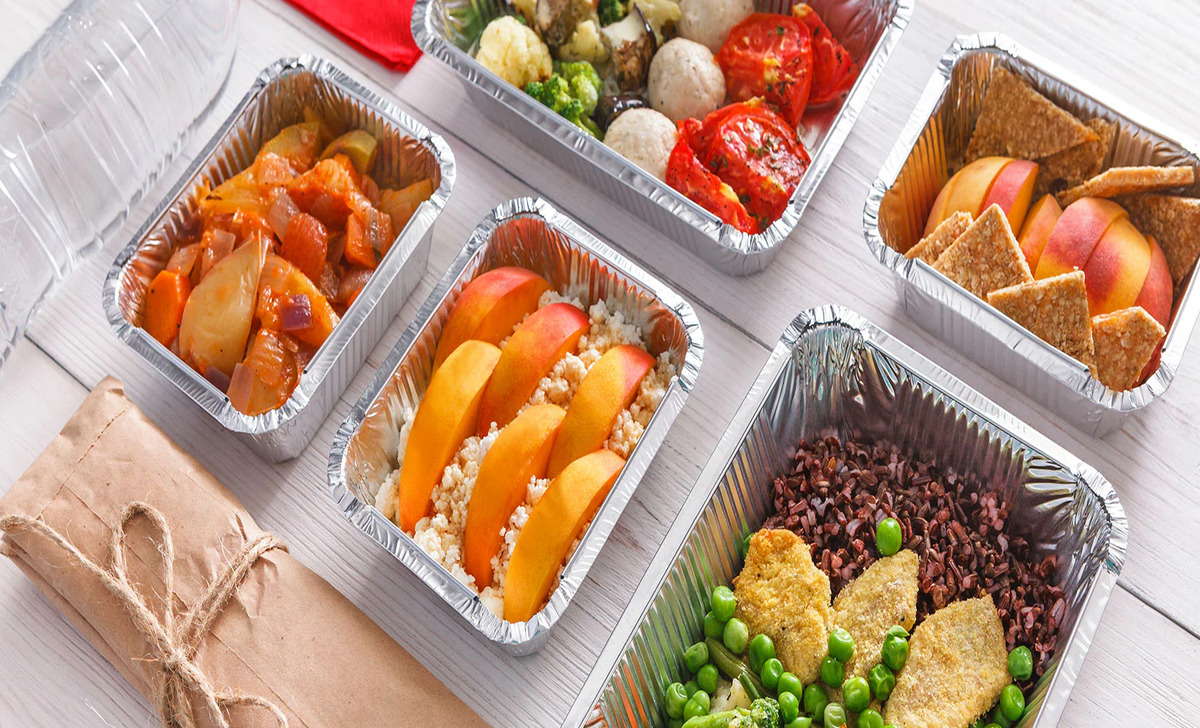
When you are at home, you eat to your heart’s content. But being in a journey, you cannot do the same. While choosing the foods for travelling, you have to be a bit health conscious. All the non-perishable foods are not strictly non-perishable.
Some last for some days and some for years. However, aseptically packaged foods & juices, packaged nuts, dried fruits, or dried meat, shelf-stable milk are good for travelling as they have high storage life. Besides, you cannot take all the types of for all the ages of people. Old people and children need to be in special consideration as they cannot digest everything they consume easily. Light and digest-friendly foods are best for them.
You need to make a healthy food choice for you. Try to avoid high-fat foods because it may tell upon your health. However, try to skip the candy bars and chips because these will not satisfy your hunger for a longer period of your journey.
How Do You Eat Healthy On A Long Road Trip?
This has become a major concern for me because I’m planning to take one of my first out-of-state road trips later this year. I’ve heard that gas stations are an absolute nightmare when it comes to healthy eating options. And, after doing some research into other people’s experiences, I’ve learned this is true.
Everything from microwaved burgers and pizza slices, to doughnuts and candy bars. Yuck! So, what’s a road warrior to do? How can we plan ahead so that we’re able to enjoy healthy options throughout the entire trip without having to worry about stopping at just any gas station?
Conclusion
You know what, food is an essential element of all the types of the journey whether it’s a long or short one. The concern becomes great, especially when you are on a long-distance one.
Non-perishable foods are always there to help you out fight hunger pangs while they are travelling long-distance. But you need to be cautious about health issues as well.
You can’t take whatever you want to take as non-perishable food for travelling. Instead, you need to follow a diet chart to select the nutritious food items to consume while having your trip. Furthermore, many travelers spend a lot of money on their budget on food.
But remember my friends, just prior planning and good spending choices can help to minimize out your travel expenses. Your planning will save your money by providing you with inexpensive and healthy foods among the Non Perishable Foods for Travelling. I hope now you know about what are the best healthy non perishable foods for travel.
Frequently Asked Questions
- Dried and canned beans. With a long shelf life and high nutrient content, dried and canned beans are smart non-perishable food choices.
- Nut butters.
- Dried fruits and vegetables.
- Canned fish and poultry.
- Nuts and seeds.
- Black Pepper Popcorn. Popcorn is an amazing choice of snack when travelling.
- Green Chutney Sandwich.
- Wheat Flakes Nut Mix.
- Chole Masala.
- Applesauce.
- Fresh fruit such as bananas, apples, oranges or grapes.
- Yogurt.
- Low-fat string cheese or cheese slices.

Leave a Reply